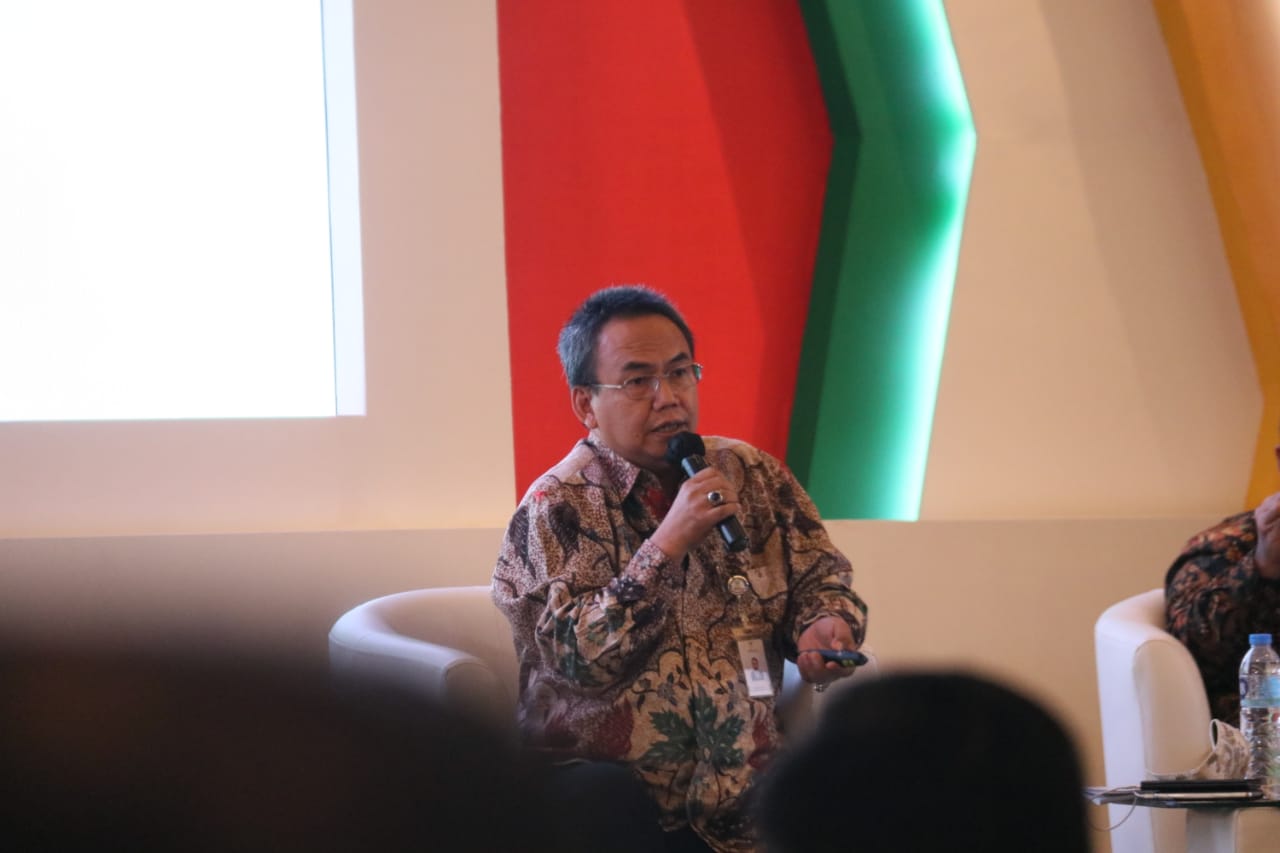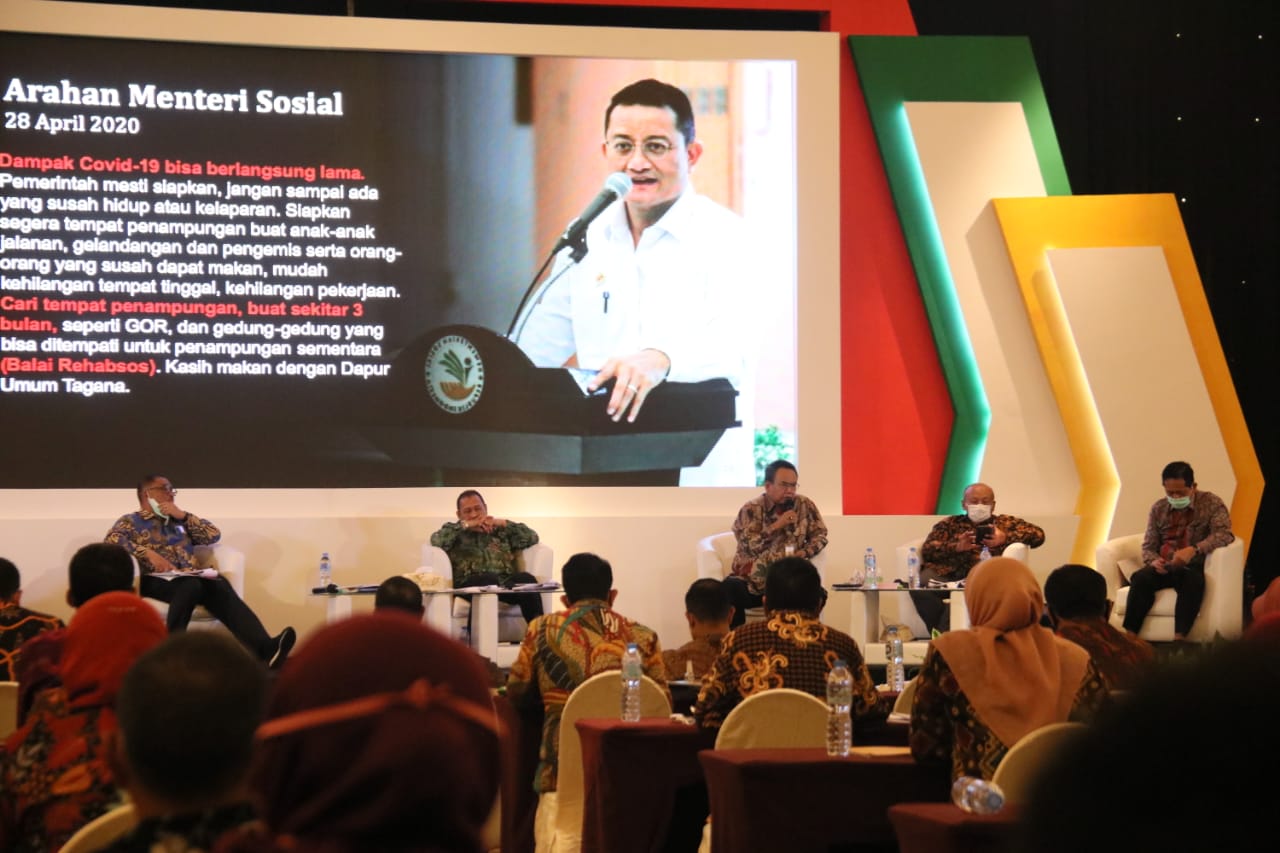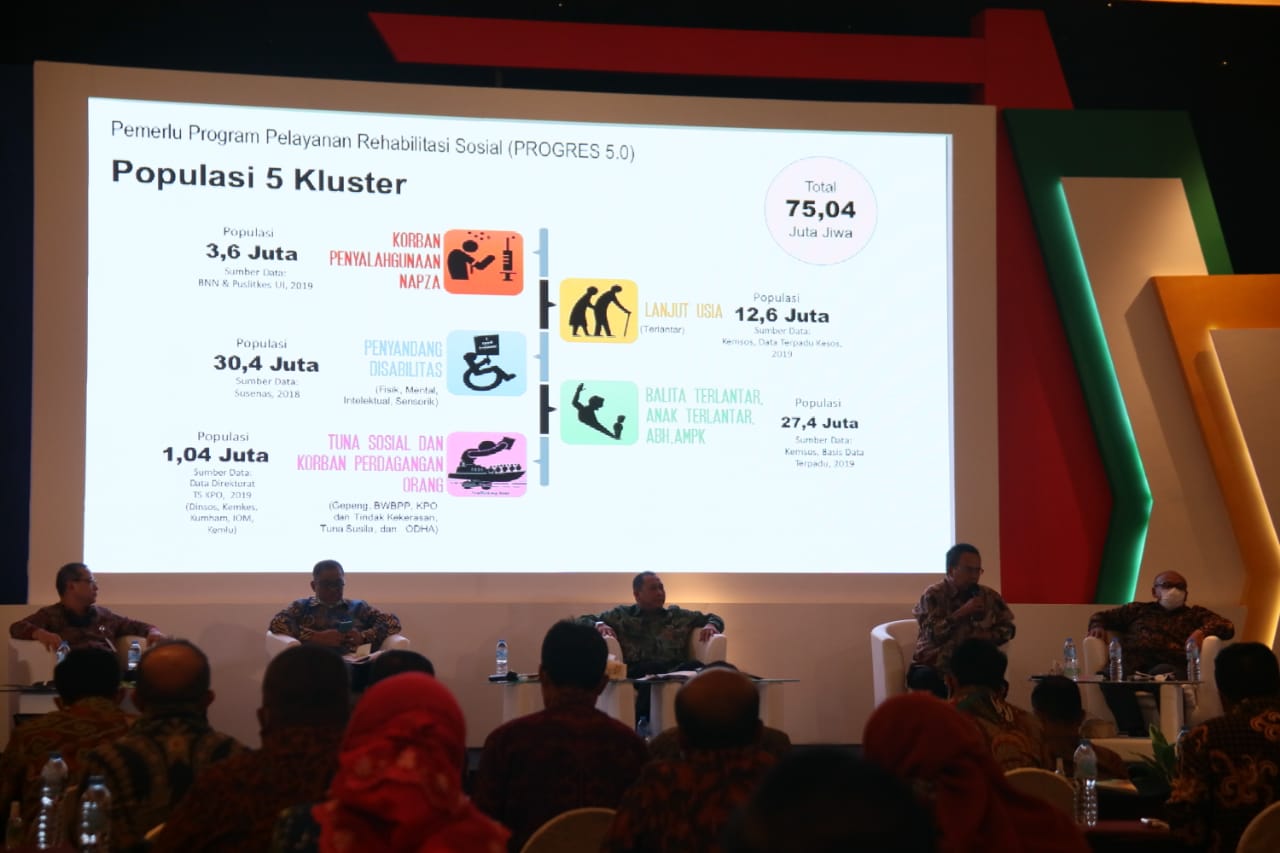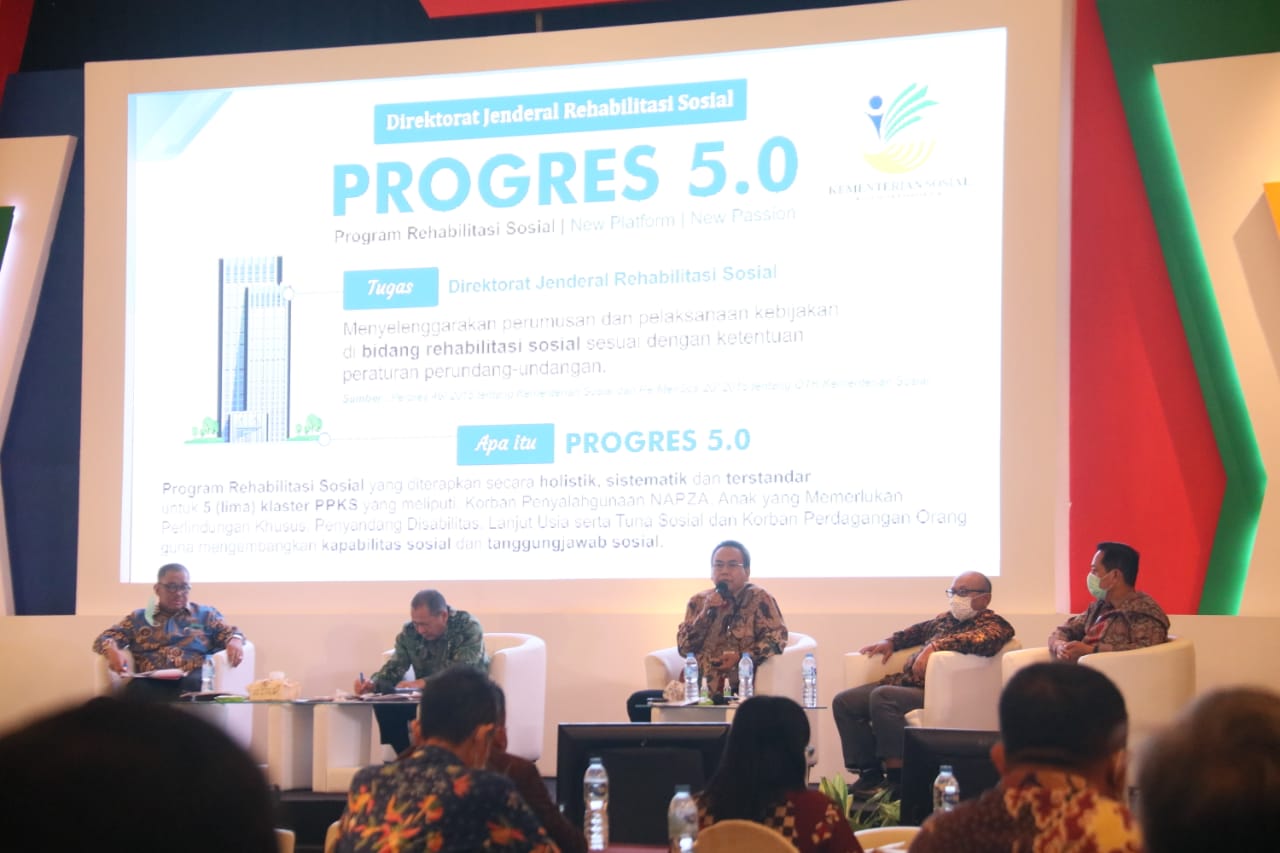JAKARTA (July 21, 2020) - The Director General of Social Rehabilitation of the Indonesian Ministry of Social Affairs, Harry Hikmat reported the evaluation of the Social Rehabilitation program to the Minister of Social Affairs, Juliari P. Batubara at the Coordination Meeting for Mid-Year Evaluation (Semester 1) and Acceleration of Budget Implementation for 2020 organized by the Secretariat General, Ministry of Social Affairs RI.
Referring to the magnitude of the problem from Social Rehabilitation, there are 75.04 million Persons Needing Social Welfare Service (PPKS) which are divided into 5 clusters, namely children, persons with disabilities, the elderly, victims of drug abuse and persons with social deviance issues and victims of trafficking in persons. However, the existing data does not describe the By Name By Address data.
"We are intensive with Data and Information Center (Pusdatin) to realize data by name by address, this is the biggest challenge to integrate with Integrated Social Welfare Data (DTKS)," said the Director General of Social Rehabilitation.
On this occasion, the Director General of Social Rehabilitation also conveyed that the realization of the Social Rehabilitation Program budget until 19 July 2020 had reached 49.13%. The realization consisted of 47.73% from the Directorate of Social Rehabilitation of Children, 44.40% from the Directorate of Social Rehabilitation of Persons with Disabilities, 76.46% from the Directorate of Social Rehabilitation for the Elderly, 41.07% from the Directorate of Social Rehabilitation of Drug Abuse Victims and 48 97% of the Directorate of Social Rehabilitation of the Persons with Social Deviance Issues and Victims of Trafficking in Persons.
The thing that is quite a concern for the Directorate General of Social Rehabilitation during the COVID-19 Pandemic, is that there are vulnerable groups who are affected. "The most affected are the vulnerable groups, the underprivileged and even marginalized," said the Directorate General of Social Rehabilitation. In addition, the number of PPKS population on the streets and public spaces affected by COVID-19 has also increased.
The target of the Social Rehabilitation Program in 2020 totals of 123,500 people. However, the realization was 155.727 people, so that the percentage of realization was 126.1%.
Most of this realization was allocated for handling PPKS and residents affected by COVID-19. "One of them is the direction of the Minister of Social Affairs of the Republic of Indonesia, Juliari P. Batubara, to take care of displaced people affected by COVID-19," said the Directorate General of Social Rehabilitatition.
The Social Rehabilitation Program in the form of Handling Displaced People Affected by COVID-19 (PWTC) puts forward three strategic approaches, namely a family and community-based approach assisted by Social Welfare Institutions (LKS), an approach based on Temporary Shelters (TPS) in the form of a Sports Center (GOR) and a social rehabilitation center/orphanage.
"This is a mechanism that was built, meaning that if there is outreach, it is temporarily taken to the GOR. However, if further services are needed, they can be brought to the Social Rehabilitation Center/Panti," explained the Director General of Social Rehabilitation. Furthermore, prevention can be done in the community where they come from.
The latest data is the total number of displaced people due to COVID-19 which has been handled by the Directorate General of Social Rehabilitation, the Indonesian Ministry of Social Affairs in collaboration with the DKI Jakarta Provincial Government as many 5,709 people. This number consists of 2,530 people in TPS (GOR), 2,781 people in Community (LKS) and 398 people in Social Rehabilitation Center.
The cumulative data on the distribution of basic food social assistance at the Directorate General of Social Rehabilitation head office is 62.21%, which is as many as 21,256 food packages that have been distributed from the target of 34,168 basic food packages. This basic food package comes from the budget refocusing of the Directorate General of Social Rehabilitation head office.
Then, cumulative data on the distribution of basic food social assistance to 41 Technical Implementing Units (UPT) at the Directorate General of Social Rehabilitation was 99.35%, ie 36,844 basic food packages had been distributed from the target of 37,084 basic food packages. This basic food package comes from the budget refocusing of the UPT Directorate General of Social Rehabilitation.
Going forward, steps to accelerate the realization of the 2020 Social Rehabilitation Program budget are carried out through budget revisions, accelerating contractual bill payments, accelerating the process of procuring goods and services, re-activating Social Rehabilitation services at UPT by paying attention to health protocols and providing assistance to each Work Unit.
The Directorate General of Social Rehabilitation will also strengthen the commitment of the 5 Clusters Social Rehabilitation Program (Progress 5.0), so that the implementation of social rehabilitation in 5 clusters can be standardized, both in terms of programs, human resources to the implementation of management and administration.
We will continue the standardization construction, both intervention, human resources, especially mentoring, technical support and even support for accessibility strengthening through the Social Rehabilitation Assistance (ATENSI) business process. "This is a commitment to standardize operational patterns at the center level," concluded the Directorate General of Social Rehabilitation.
In 2021, ATENSI will be strengthened at the grass root level which includes the fulfillment of basic needs, therapy (physical, mental, spiritual, psychosocial, skills/entrepreneurship), social care/nurturing (needs for love, safety, attachment, welfare) and family support (emotional), knowledge, relationship skills and understanding the problems at hand).
ATENSI's business process is based on a paradigm shift from the limited, long-term nature of services and the experience of humanitarian practitioners to multifunctional services, short-term, family service centers and professional social worker practices. "We make sure this business process takes place at the grass root, while at the center as a supporting system," concluded the Directorate General of Social Rehabilitation.
This activity was attended by all Echelon I and II Officials of the Ministry of Social Affairs of the Republic of Indonesia, All Heads of the Central Work Units of the Ministry of Social Affairs, All Heads of Technical Implementation Units of the Indonesian Ministry of Social Affairs.
This activity also presented speaker, namely the Director General of Budget of the Ministry of Finance, the Head of the Financial and Development Supervisory Agency (BPKP) and the Deputy Chair of the Corruption Eradication Commission.
Writer :
OHH Ditjen Rehsos
Editor :
Annisa YH
Translator :
Mellin Sindi P; Karlina Irsalyana
Share :
 English
English
 Bahasa
Bahasa




